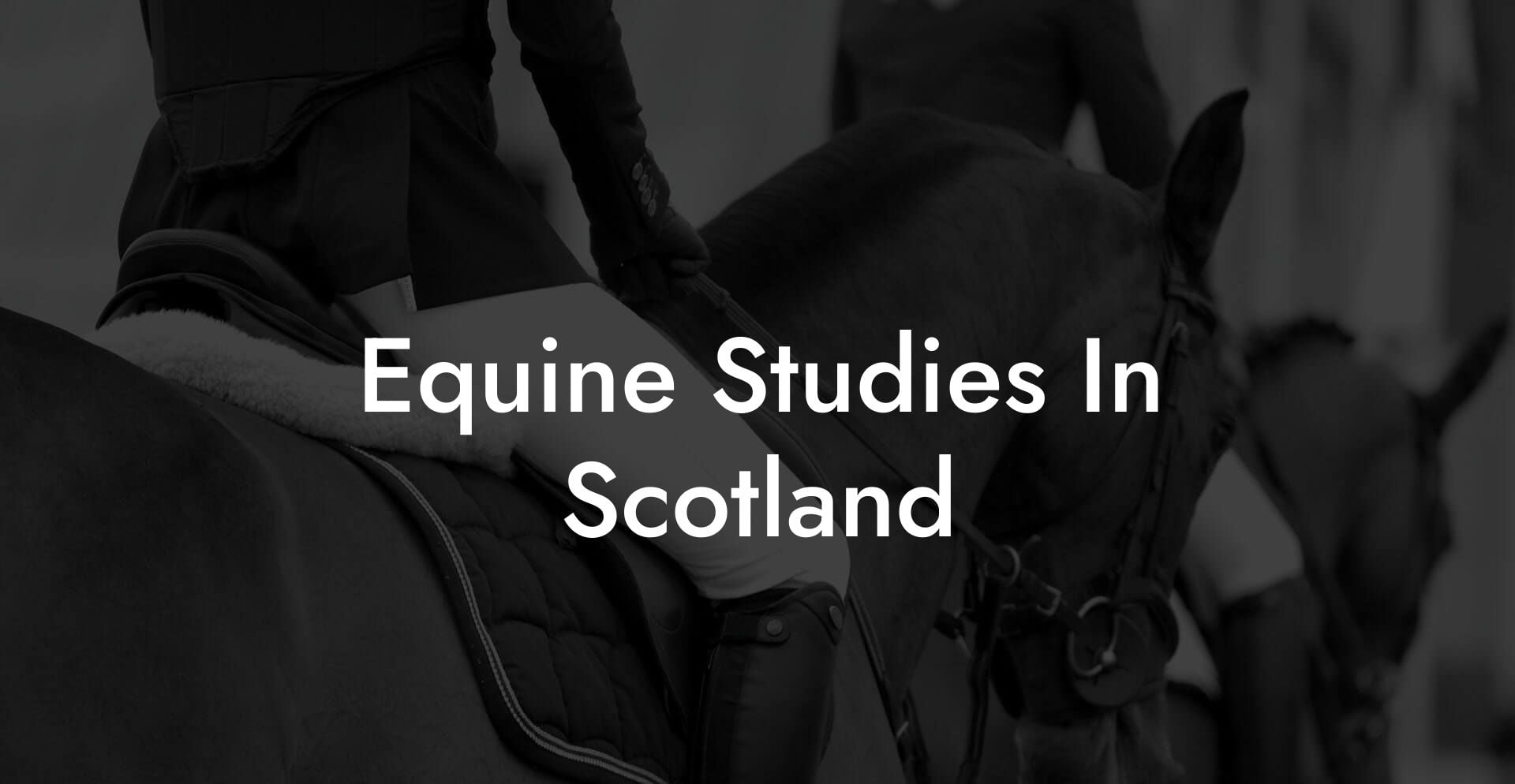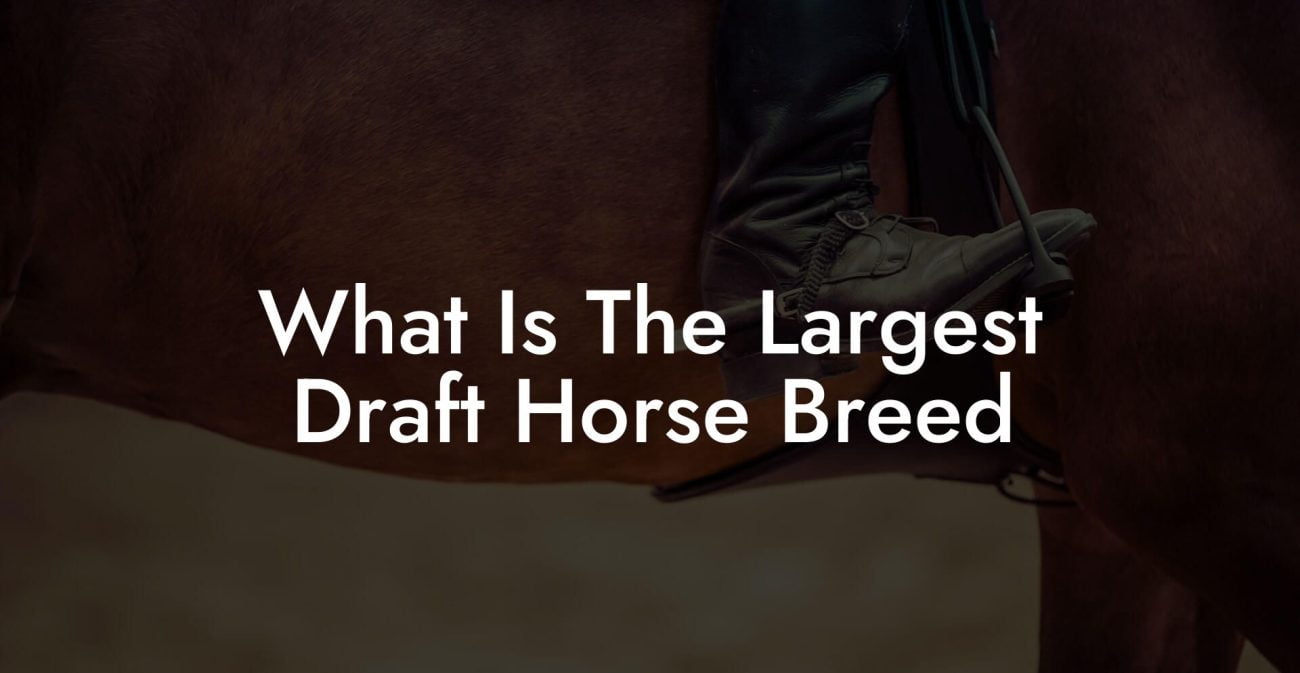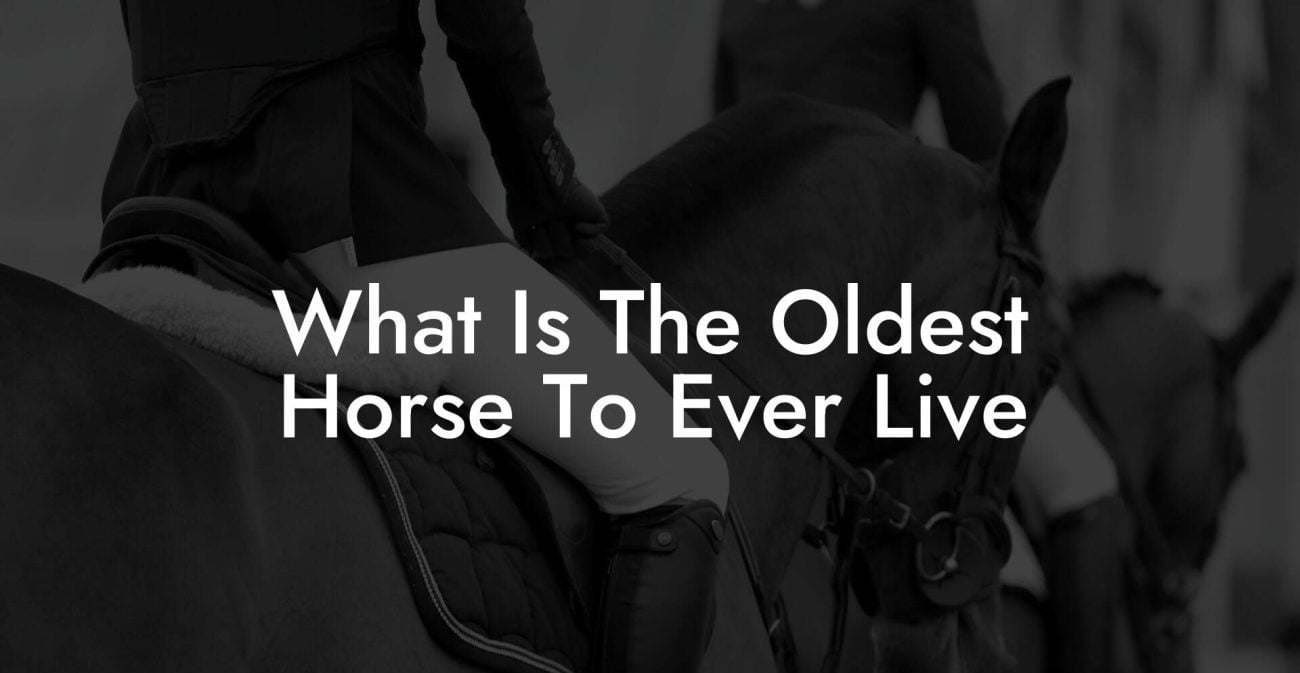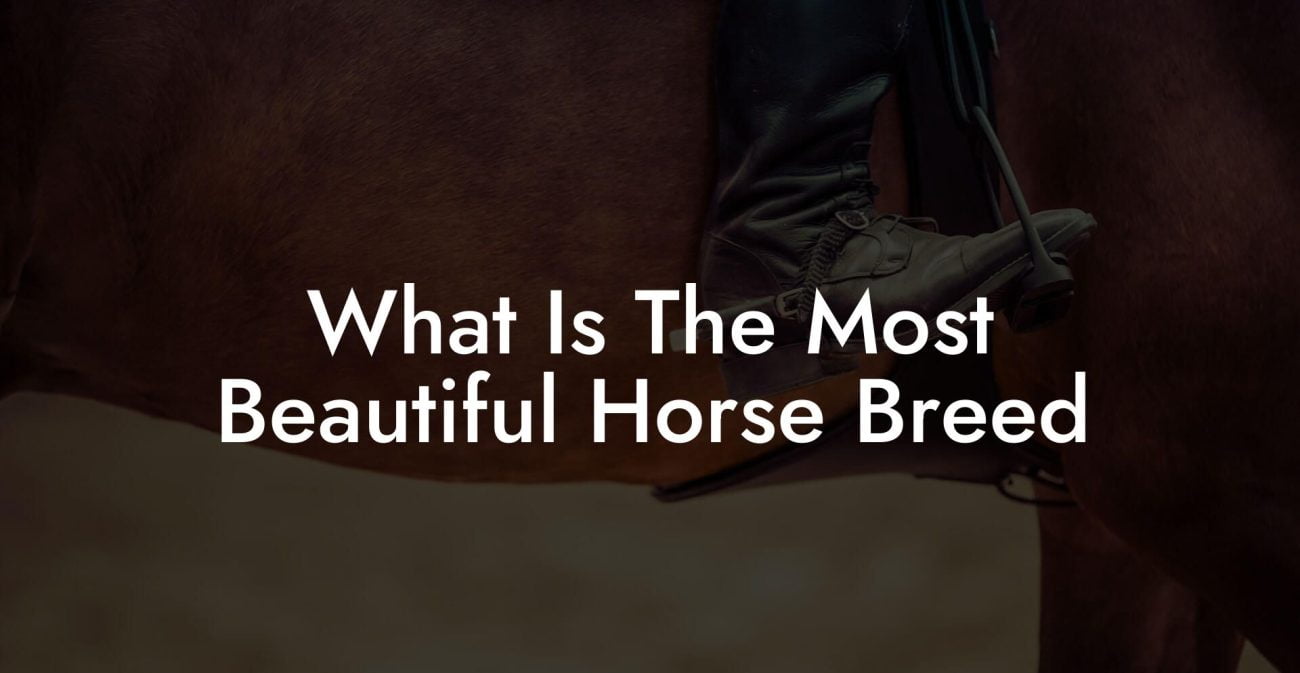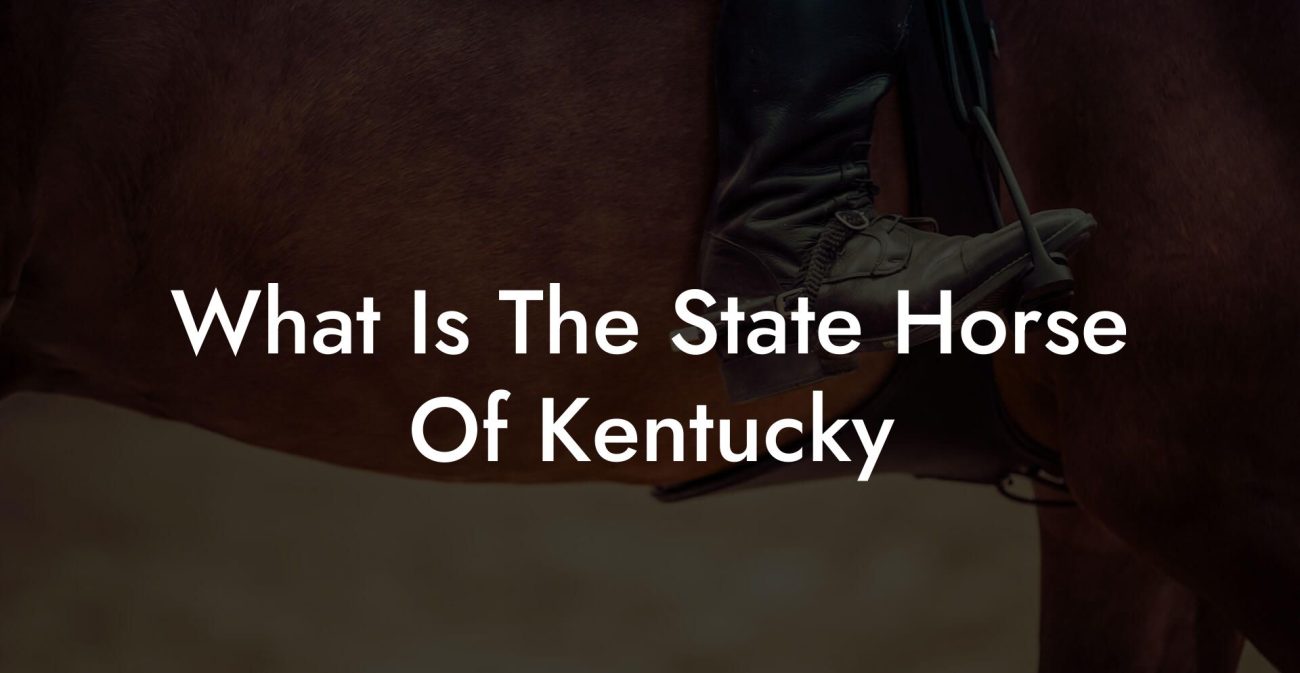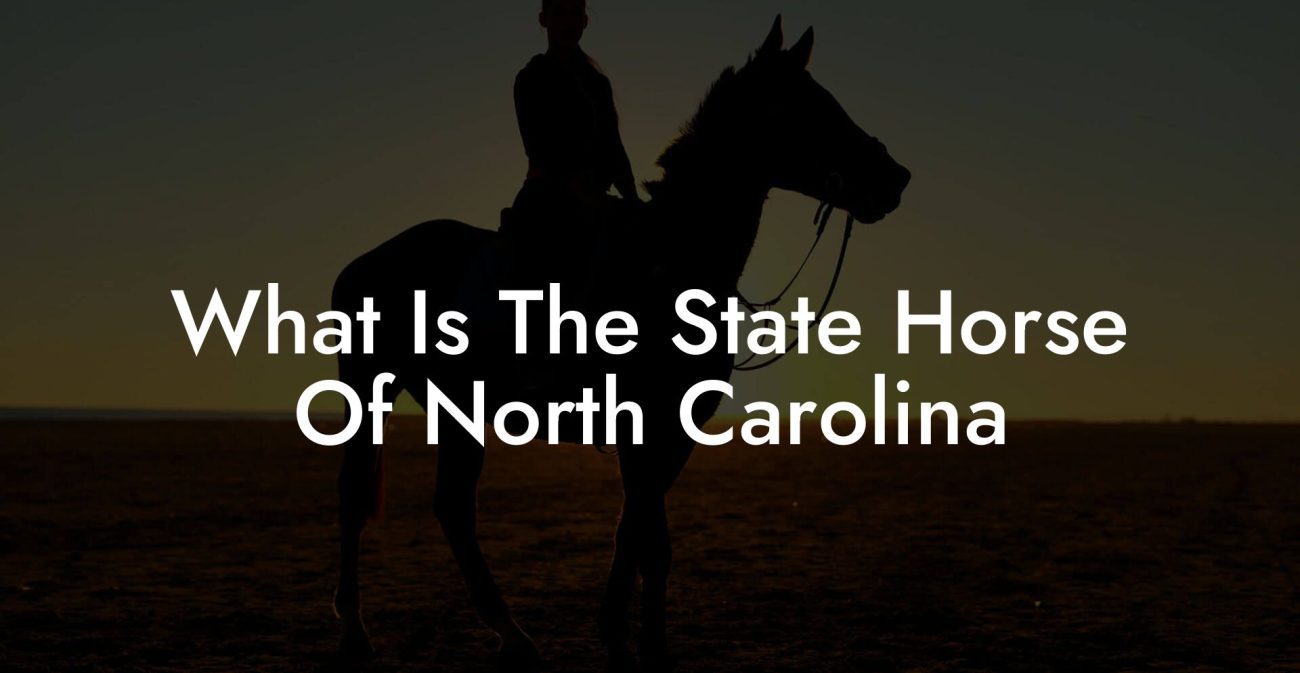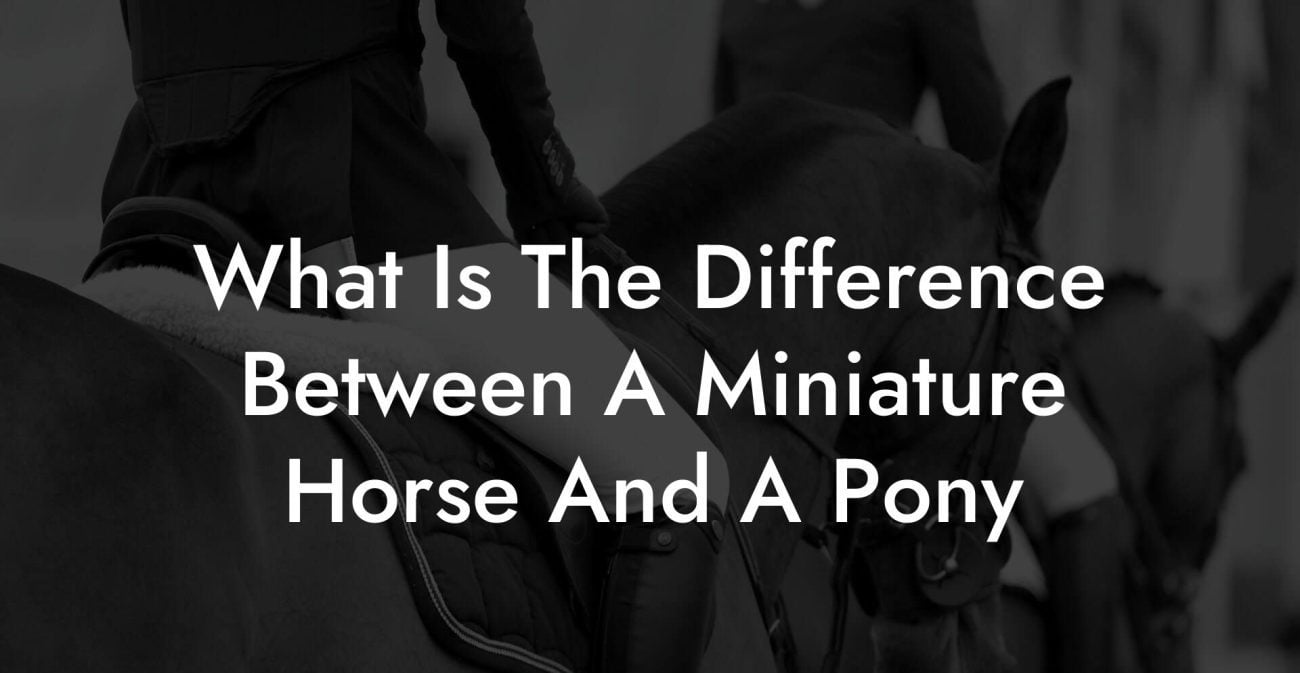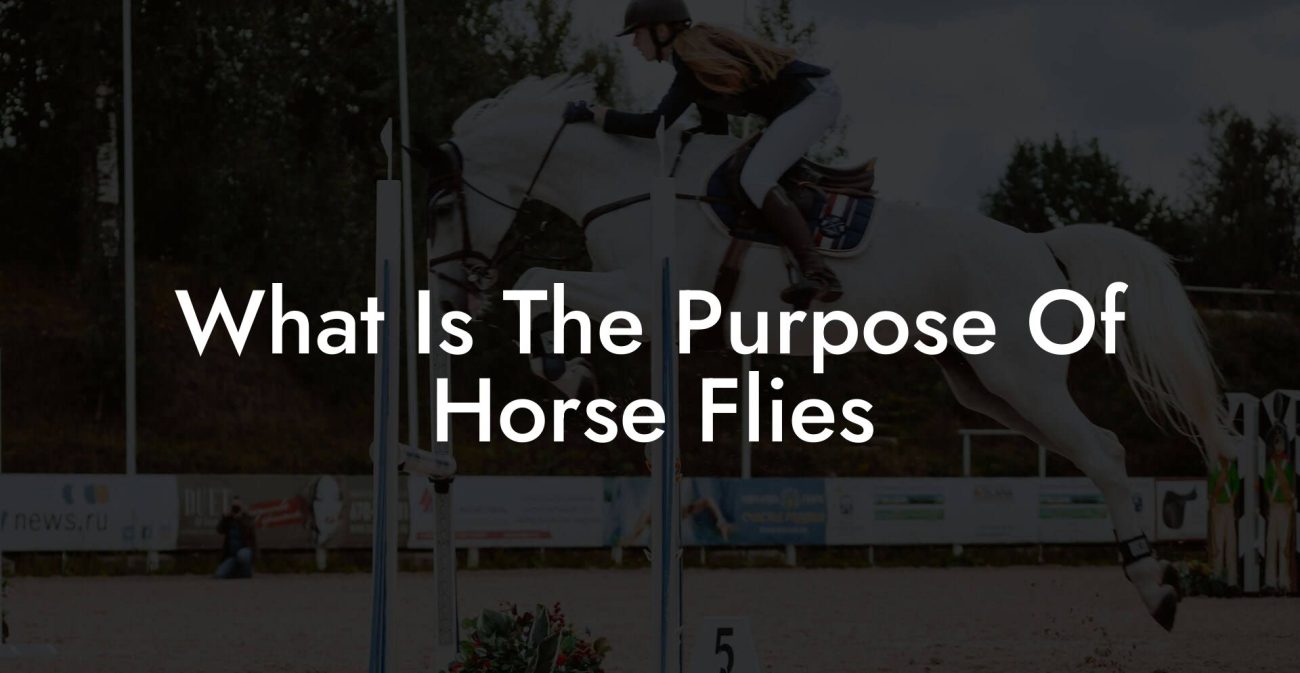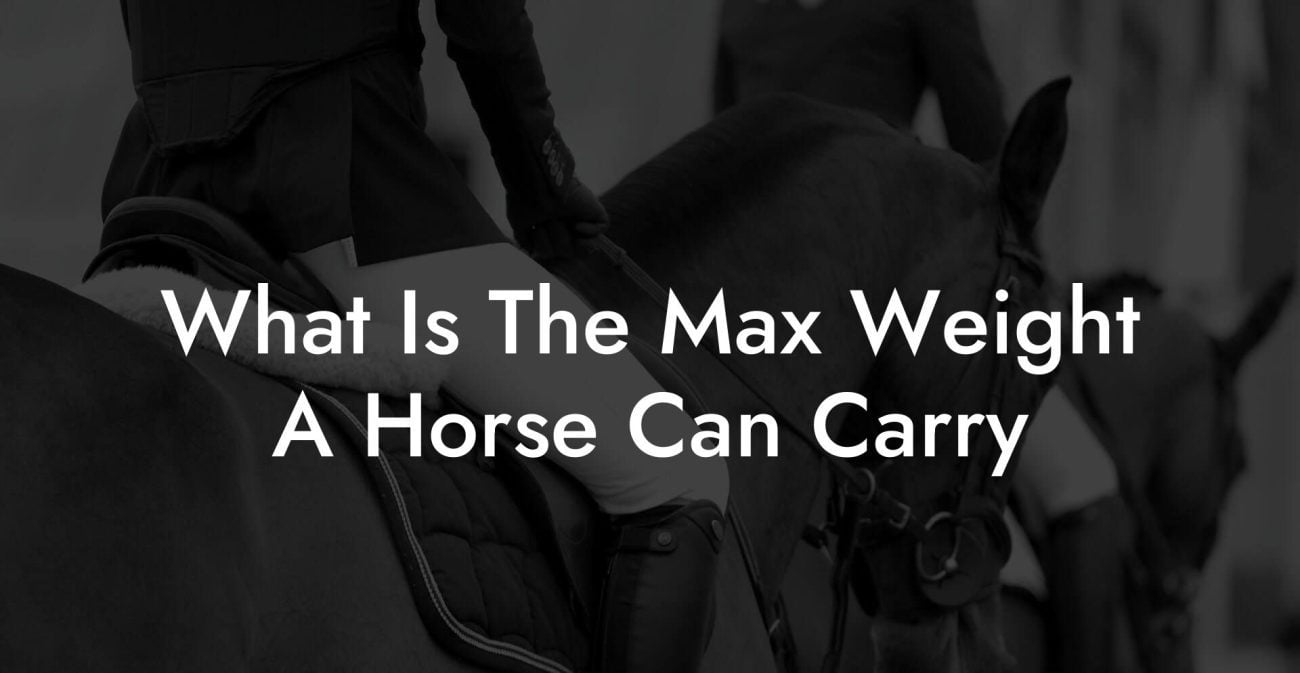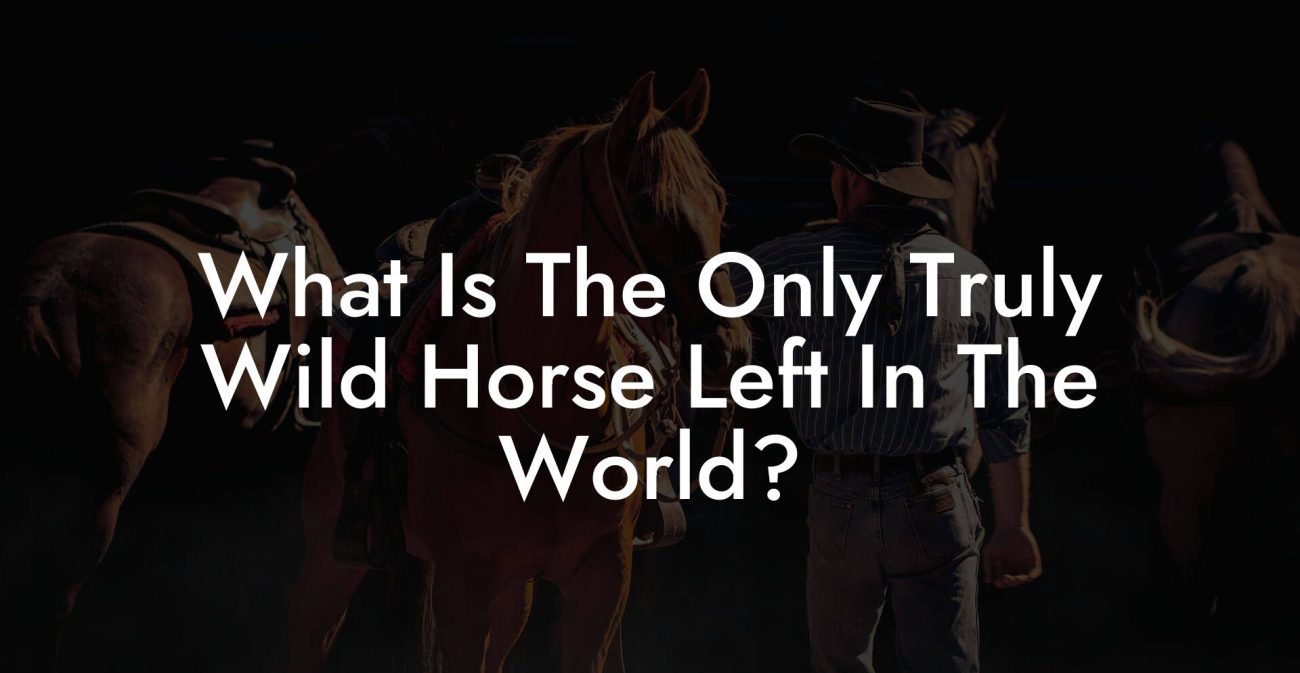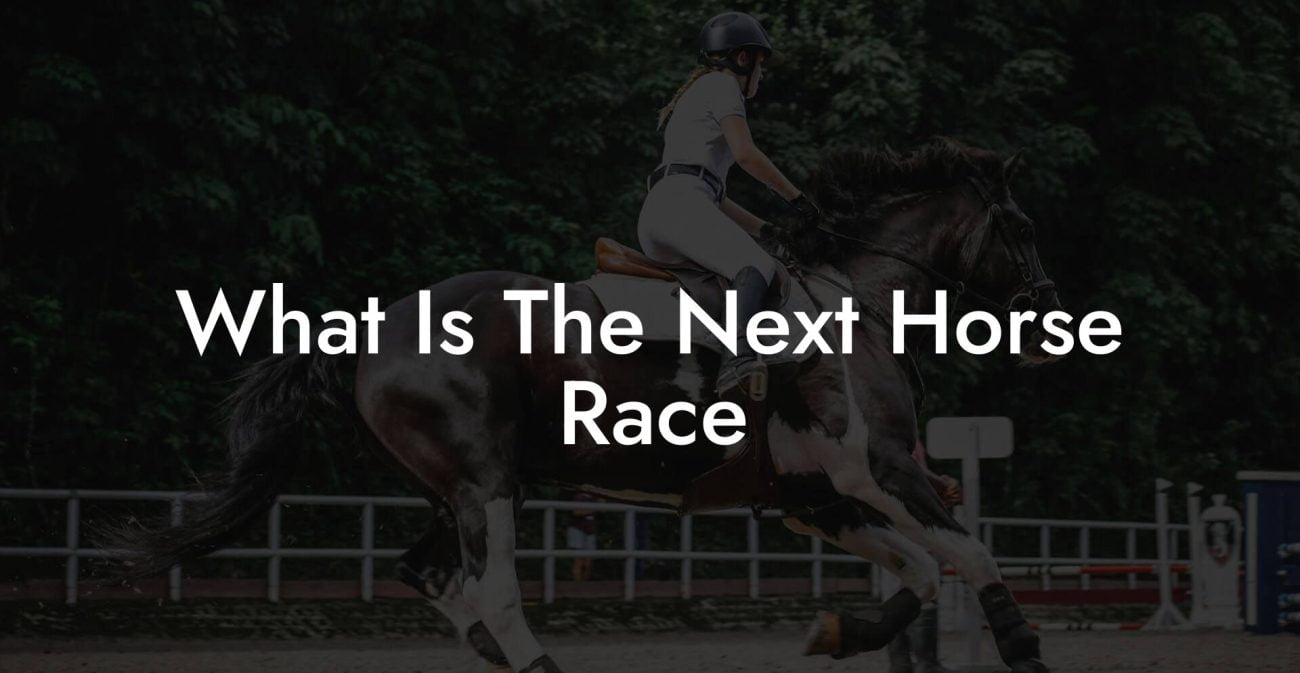Get ready to toss aside everything you thought you knew about horses and dive headfirst into the world of Equine Studies in Scotland, a vibrant, dynamic field that blends centuries-old traditions with contemporary science, quirky culture, and a whole lot of heart. Whether you’re a first-time horse owner, a college student curious about equine science, or a Gen-Z adventurer eager to learn how to care for your four-legged friend, Scotland’s rugged highlands, rolling meadows, and innovative equine programs have something epic to offer.
Quick Links to Useful Sections
- The Rich Tapestry of Equine Culture in Scotland
- Exploring Equine Studies in Scotland: What’s It All About?
- Scotland’s Premier Equine Programs: Where Tradition Meets Innovation
- University Courses and Accredited Programs
- Specialized Equestrian Academies
- Community-Based Workshops and Short Courses
- Caring for Your Horse: The Modern Approach to Equine Well-Being
- Conventional Veterinary Care: The Bedrock of Health
- Grooming and Maintenance: Beyond the Brush
- Equine Nutrition: Food for Galloping Greatness
- Innovative Practices in Modern Equine Care
- Equine Technology: From Wearables to Data-Driven Care
- Complementary Therapies: Natural Routes to Recovery
- Mindful Equine Management: A Modern, Stress-Free Philosophy
- Case Studies: Real-Life Stories from Scotland’s Equine World
- Case Study 1: Revitalizing a Champion Through Holistic Healing
- Case Study 2: From Farm to Fame, A Student’s Journey In Equine Studies
- Case Study 3: Bridging the Gap Between Tradition and Tech
- Crafting Your Personalized Equine Care Blueprint
- Step 1: Conduct a Thorough Equine Assessment
- Step 2: Design Realistic, Tailored Goals
- Step 3: Meld Conventional and Innovative Practices
- Step 4: Create a Flexible Daily Schedule
- Step 5: Monitor, Reassess, and Adapt
- Resources and Community Support: Your Next Steps in Equine Mastery
- Equine Studies in Scotland FAQs: Your Burning Questions Answered
- Your Journey into the Dynamic World of Equine Studies in Scotland
The Rich Tapestry of Equine Culture in Scotland
Scotland has long captivated audiences with its breathtaking landscapes and storied history, and horses have galloped their way into the nation’s soul. From ancient Celtic legends of mythical steeds to modern-day equestrian events that blend sport, art, and heritage, horses in Scotland embody freedom, strength, and a deep connection to nature. Today’s equine studies capture this spirit by combining cutting-edge veterinary research, natural horsemanship, and a heaping dose of traditional know-how.
In this journey, we’ll explore everything from the evolution of Scottish equine practices to the latest trends in horse care and equestrian education. We’re talking hands-on advice for grooming, maintaining fitness, nutrition, and even innovative therapeutic approaches, all underpinned by Scotland’s unique cultural legacy.
Exploring Equine Studies in Scotland: What’s It All About?
Equine Studies in Scotland isn’t just a course of study or a passing fad, it’s a deep dive into the complex world of horses, where science meets soul. At its core, equine studies range from learning about equine veterinary care, training methodologies, and nutrition to understanding horse behavior, biomechanics, and even the psychology of man’s best equine friend.
Modern equine programs in Scotland cover a broad spectrum of subjects. Whether you’re interested in the science behind equine performance or the art of natural horsemanship, you’ll find courses that explore:
- Equine Anatomy and Physiology: Understanding the internal mechanics of the horse, muscles, bones, and everything in between.
- Equine Nutrition and Feed Science: Discover how to fuel your horse with foods that boost health and performance, incorporating trends in organic, local, and innovative feed options.
- Veterinary Medicine & Care: In-depth courses on preventing, diagnosing, and treating common ailments and injuries.
- Equine Behavior and Psychology: Unlocking the secrets behind a horse’s mind, from learning patterns to stress responses in different environments.
- stable Management and Equestrian Business: Practical lessons on running a stable, managing staff, and even marketing your equine expertise in a digital age.
With a blend of lecture-based learning and real-world experience on working farms and riding schools across Scotland, equine studies offer a holistic education that readies you for a life intertwined with these magnificent animals.
Scotland’s Premier Equine Programs: Where Tradition Meets Innovation
Scotland plays host to some of the finest equine studies programs in the world, uniquely balancing revered traditions with modern innovations. Universities, specialized colleges, and vocational training centers have recognized the need to nurture both the science and the art of horse care.
University Courses and Accredited Programs
For aspiring equine scientists and veterinarians, renowned institutions across Scotland offer comprehensive degree programs that interweave theoretical foundations and hands-on practice. These courses dive deep into animal husbandry, equine physiology, and nutrition, ensuring that students graduate as skilled professionals ready to make a real difference.
Topics such as equine biomechanics, sports medicine, and the latest digital tracking apps for managing horse health are all part of the modern curriculum. This blend of traditional techniques and new tech makes these programs a perfect playground for Gen-Z and millennial learners.
Specialized Equestrian Academies
Not everyone aspires to wear a lab coat, some are drawn to the stable and the saddle. Equestrian academies and riding schools across Scotland focus on natural horsemanship, riding skills, and the art of building rapport with a horse. These establishments prioritize practical skills, ensuring that every lesson is as hands-on as it is theory-based.
With courses ranging from beginner riding to advanced training techniques, specialized programs cater to enthusiasts at every level. Learn how to manage a stable, deliver first aid to a distressed equine, or even lead an equestrian event, the sky’s the limit in these immersive environments.
Community-Based Workshops and Short Courses
For those who prefer a less formal education or want to supplement rigorous academic programs, community workshops and short courses are alive and kicking across the Scottish countryside. These bite-sized sessions are designed to offer quick tips on horse grooming, basic veterinarian skills, mental stimulation exercises for horses, and even eco-friendly stable management.
Delivered by seasoned practitioners and local experts, these workshops are often hosted in picturesque settings that inspire creativity and a profound connection to nature, a true win-win for both mind and soul.
Caring for Your Horse: The Modern Approach to Equine Well-Being
Let’s face it, taking care of a horse isn’t just about cleaning stalls and brushing mane; it’s a comprehensive lifestyle that demands attention to the animal’s physical, mental, and emotional needs. Modern equine care is as much about science as it is about empathy, and Scotland’s innovative approaches are blazing the trail.
Conventional Veterinary Care: The Bedrock of Health
Every responsible horse owner knows that regular veterinary check-ups are non-negotiable. In Scotland, equine veterinary care combines centuries of traditional methods with state-of-the-art diagnostic technologies. Routine examinations are critical for identifying potential health issues, from lameness and dental problems to digestive and respiratory concerns.
Key elements in conventional care include:
- Regular Health Assessments: Comprehensive check-ups, including blood tests and imaging, help detect issues before they escalate.
- Vaccinations and Deworming: Keeping infectious diseases at bay is essential to maintaining a vibrant, active horse.
- Emergency Care: Knowledge of swift intervention strategies for injuries and acute illnesses is a cornerstone of professional equine care.
With an emphasis on preventive medicine, Scotland’s veterinarians are leading the way in ensuring that your equine companion stays in tip-top shape year-round.
Grooming and Maintenance: Beyond the Brush
Grooming your horse is akin to a daily spa session, and it’s an activity that bonds you to your animal like nothing else. Yet, modern grooming goes far beyond simple brushing, think high-tech grooming kits, natural shampoos designed specifically for equine coats, and even aromatherapy to soothe anxious horses.
Modern grooming tips include:
- Daily Brushing Techniques: Regular brushing not only removes dirt and loose hair but also enhances blood circulation and strengthens the bond between you and your horse.
- Hoof Care: Routine cleaning and the timely application of hoof oil or treatments prevent infections and promote overall hoof health.
- Manicure for Manes: Whether you sport a braided style or let your mane flow wild, proper detangling and conditioning are key to avoiding hair damage.
Embracing these grooming trends not only elevates your horse’s appearance but also serves as the first line of defense against common skin and hoof issues.
Equine Nutrition: Food for Galloping Greatness
What you feed your horse is as important as what you feed yourself, a well-balanced diet is fundamental to maintaining peak performance. Scotland’s equine nutritionists are merging time-honored feeding practices with contemporary strategies that emphasize whole grains, locally sourced hay, and organic supplements.
When it comes to equine nutrition, consider these power-packed tips:
- High-Quality Forage: The foundation of any diet should be good-quality hay or pasture, rich in essential nutrients and free from contaminants.
- Balanced Concentrates: Supplement your horse’s diet with the right mix of grains and proteins to fuel energy needs and support muscle repair.
- Hydration is Key: Fresh water should be available around the clock, and sometimes electrolytes can help during periods of intense physical activity.
- Natural Supplements: Omega-3 fatty acids, biotin, and other supplements can boost coat quality, joint health, and overall vitality.
By incorporating these nutritional insights into your stable routine, you’re not only optimizing your horse’s physical health but also ensuring that they have the energy to keep up with your adventurous spirit.
Innovative Practices in Modern Equine Care
While traditional methods remain crucial, modern equine care is increasingly embracing innovative practices that harness technology and alternative therapies. Let’s unpack some of these cutting-edge strategies that are making waves in Scotland’s equine community.
Equine Technology: From Wearables to Data-Driven Care
The digital revolution hasn’t left horses behind. Smart wearables and tracking devices are now a staple in many stables, giving owners real-time insights into their horse’s health and performance. These tools track vital signs, movement patterns, and even stress levels, making it easier than ever to detect subtle changes that could indicate a potential problem.
Key benefits of equine technology include:
- Data-Driven Insights: Advanced sensors and mobile apps allow you to monitor your horse’s vitals, ensuring timely interventions when needed.
- Enhanced Performance Tracking: For competitive riders, performance analytics can help fine-tune training regimens and improve overall results.
- Remote Monitoring: Stay connected with your horse even when you’re not at the stable, perfect for busy millennials balancing multiple passions.
The integration of technology in equine care reflects a broader trend toward a smarter, more responsive approach to animal management, one that truly resonates with today’s tech-savvy generation.
Complementary Therapies: Natural Routes to Recovery
Alongside technology, many horse owners in Scotland are turning to complementary therapies to complement traditional veterinary care. Techniques such as acupuncture, massage, and even equine yoga are finding their place in the modern stable.
Consider these alternative approaches:
- Acupuncture: Revered for its time-tested benefits, acupuncture can help alleviate muscle tension, stimulate recovery, and improve overall wellness.
- Massage Therapy: Regular therapeutic massages promote circulation, ease joint stiffness, and help keep muscles supple and ready for action.
- Equine Rehabilitation Programs: Specialized programs that focus on post-injury recovery or performance enhancement, mixing physical therapy techniques with targeted exercise routines.
These holistic practices, tailored to the needs of our equine companions, echo Scotland’s natural setting, where the rugged outdoors inspires innovative, nature-infused approaches to care.
Mindful Equine Management: A Modern, Stress-Free Philosophy
Caring for a horse isn’t just a physical task; it’s an emotional journey. Integrating mindfulness into equine management can reduce stress for both the rider and the horse. Imagine learning to read subtle behavioral cues through meditation-inspired observation techniques that help you create a harmonious, stress-free stable environment.
Modern mindfulness practices for horses include:
- Quiet Time and Bonding: Allocate moments of stillness where you and your horse can simply be together, fostering trust and understanding.
- Guided Observation: Learn techniques to observe your horse’s body language, interpreting signs of discomfort or joy with a calm, clear mind.
- Stress-Relief Routines: Implement short daily routines that promote relaxation, think easy strolls or gentle stretching sessions that help release built-up tension.
By embracing mindfulness, you not only improve your horse’s well-being but also enhance your own equestrian experience, making every moment with your companion more rewarding.
Case Studies: Real-Life Stories from Scotland’s Equine World
Nothing illustrates the transformative power of modern equine care like real-life examples. Across Scotland, numerous stories capture the remarkable journeys of horses and their caregivers who have embraced holistic practices and innovative techniques.
Case Study 1: Revitalizing a Champion Through Holistic Healing
Meet Blaze, a once-vibrant racehorse whose performance began to wane due to recurring joint issues. After a thorough assessment by a top Scottish equine veterinarian, Blaze’s team integrated conventional veterinary care with acupuncture and targeted massage therapy. In parallel, they installed a wearable tracking device to monitor his vitals during training sessions. Over the course of several months, not only did Blaze’s speed return, but his overall demeanor became more balanced and focused. This success story illustrates how combining traditional and innovative therapies can breathe new life into even the most seasoned champions.
Case Study 2: From Farm to Fame, A Student’s Journey In Equine Studies
For Emma, a passionate millennial student in equine studies, Scotland’s dynamic academic and practical programs were a game-changer. Facing the challenges of juggling rigorous coursework with hands-on stable management, Emma leveraged community workshops and short courses to refine her grooming, nutritional planning, and riding skills. Her experience culminated in a volunteer project that introduced digital tracking systems to a local rural farm, significantly improving the horses’ overall health. Emma’s journey highlights the seamless integration of modern technology and traditional care techniques, a blueprint for the next generation of equine experts.
Case Study 3: Bridging the Gap Between Tradition and Tech
Duncan, a long-time horse trainer from the Scottish borders, was initially skeptical about the influx of modern technology in equine care. However, after witnessing firsthand the benefits of integrating smart wearables and data-driven insights, he revamped his entire training regimen. By pairing traditional training methods with performance tracking and mindfulness techniques, Duncan was able to reduce injuries while boosting his horses’ stamina and mental focus. His transformation from a traditionalist to a tech-savvy trainer underscores how embracing change can lead to astonishing results in equine performance and well-being.
These case studies reinforce that whether you are a seasoned equestrian or a newcomer eager to learn, the symbiosis of old-school wisdom and new-school innovation is the secret to thriving in today’s equine world.
Crafting Your Personalized Equine Care Blueprint
Just as every horse has its unique gait and personality, every caregiver’s approach must be as individual as the horse they tend. Crafting your own equine care plan involves taking a holistic look at everything from routine veterinary needs to daily grooming, nutrition, and even stress management, for both you and your horse.
Step 1: Conduct a Thorough Equine Assessment
Start with a detailed evaluation by a trusted equine veterinarian or a seasoned trainer. This assessment should consider the horse’s physical condition, age, behavioral quirks, and dietary needs. Identify potential issues ranging from early signs of lameness to nutritional imbalances. Knowledge is power, and understanding your horse’s baseline sets the stage for a well-structured care plan.
Step 2: Design Realistic, Tailored Goals
Whether you’re aiming to boost performance for competitive events or simply ensure your horse lives its best life, set practical and achievable goals. Document targets for fitness, grooming standards, and nutritional improvements. Be sure to consider both short-term wins and long-term sustainability.
Step 3: Meld Conventional and Innovative Practices
Create a balanced routine that incorporates:
- Veterinary Check-Ups: Schedule regular health assessments and vaccinations.
- Daily Grooming and Maintenance: Establish a routine that includes brushing, hoof care, and grooming techniques enhanced by modern, eco-friendly products.
- Nutrition Planning: Work with a specialized equine nutritionist, if possible, to develop a diet that emphasizes high-quality forage, balanced concentrates, and natural supplements.
- Technology Integration: Consider smart wearables or mobile apps that offer real-time health monitoring and performance tracking.
- Mindfulness for You and Your Horse: Incorporate quiet bonding times, meditation, and stress-relief routines that benefit both caregiver and animal.
Step 4: Create a Flexible Daily Schedule
Consistency is key, but flexibility ensures that your approach evolves with your horse’s needs. Map out a daily schedule that includes exercise, feeding times, and time for relaxation. Use digital calendars or apps to set reminders, and don’t be afraid to tweak the plan as you gather more insights.
Step 5: Monitor, Reassess, and Adapt
Document your horse’s progress and any changes in behavior or health. Regularly consult with veterinary professionals and trusted mentors, and adjust your strategy as needed. Remember, a personalized equine care blueprint is a living document that grows alongside your horse.
By cultivating a proactive, multifaceted approach, you create not just a care plan, but a roadmap for a vibrant and resilient equine life, one that reflects the synergy of traditional care and modern innovation.
Resources and Community Support: Your Next Steps in Equine Mastery
The road to mastery in equine studies and horse care never has to be a solo journey. Scotland boasts a rich network of resources, communities, and platforms that provide both inspiration and practical support.
Consider tapping into these avenues:
- Local Equine Clubs and Associations: Get involved with clubs that host riding events, training workshops, and meetups where you can share tips and gain insights from other enthusiasts.
- Online Communities and Forums: Join social media groups, Reddit communities, or dedicated forums focused on equine studies and horse care. These digital spaces are treasure troves of real-life advice and support.
- Continuing Education Programs: Whether you’re enrolled in a university course or independent study, look for additional short courses and webinars to deepen your knowledge.
- Equine Trade Shows and Conferences: Keep your calendar flexible for events hosted across Scotland where industry leaders showcase the latest in veterinary technology, nutrition advancements, and innovative riding techniques.
- Local Feed and Supply Stores: These are often hubs of community knowledge, where seasoned professionals can recommend the best products and share insider tips.
By engaging with these communities, you not only enhance your knowledge but also build meaningful relationships with fellow horse enthusiasts. In a digital age where connections matter more than ever, the collaborative spirit of Scotland’s equine network will fuel your journey toward becoming a confident, innovative caregiver.
Equine Studies in Scotland FAQs: Your Burning Questions Answered
Whether you’re just getting started or looking to refine your expertise, you might have a few questions swirling in your mind about equine studies and horse care in Scotland. Here are some of the most common queries answered:
1. What exactly are Equine Studies in Scotland?
Equine Studies in Scotland encompass academic programs, hands-on training, and community-based workshops that focus on every facet of horse care, from anatomy and nutrition to behavior and stable management. It’s an interdisciplinary field that fuses traditional practices with modern innovations.
2. Who can benefit from these programs?
Anyone with an interest in horses, whether you’re a future veterinarian, a ride enthusiast, or simply a horse owner looking for better care techniques, can benefit from the diverse range of courses and workshops available.
3. What types of courses are offered in Scotland’s equine programs?
Courses range from university degree programs in veterinary science and equine behavior to practical workshops in grooming, nutrition, and riding techniques. There are also specialized short courses that cover the latest in equine technology and natural therapies.
4. How does modern technology support equine care?
With smart wearables, data-driven tracking apps, and other digital tools, technology provides real-time insights that help monitor a horse’s health, optimize training routines, and detect issues before they become serious problems.
5. Can I apply these equine studies principles if I’m a first-time horse owner?
Absolutely. The beauty of equine studies in Scotland is that they cater to all levels of experience. From beginner-friendly workshops to advanced academic programs, you can always find resources to help you provide the best care for your horse.
6. What role does nutrition play in equine wellness?
Nutrition is fundamental, proper feeding practices, high-quality forage, and balanced supplements are essential to your horse’s performance, recovery, and overall well-being.
7. Are there community support networks available?
Yes, Scotland boasts a vibrant network of equine clubs, online forums, and in-person events that connect horse enthusiasts, providing tips, support, and opportunities for continued learning.
8. How do I get started in equine studies in Scotland?
Start by exploring local universities, equestrian academies, and community workshops. Reach out to established equine professionals for mentorship, and join online forums to connect with like-minded enthusiasts.
9. Is there an emphasis on sustainable and natural equine care?
Yes, many modern equine programs prioritize eco-friendly practices, natural supplements, and sustainable stable management techniques, aligned with Scotland’s rich tradition of living in harmony with nature.
10. Can I integrate new technologies into my daily horse care routine?
Definitely. Many tools and mobile apps are designed to seamlessly integrate into your daily routine, offering real-time guidance and insights that enhance both your horse’s care and your training regimen.
Your Journey into the Dynamic World of Equine Studies in Scotland
Embracing equine studies in Scotland is more than signing up for a course or buying the latest grooming kit, it’s about immersing yourself in a lifestyle that celebrates tradition while charging boldly toward the future. Each riding lesson, every veterinary consultation, and all those quiet moments spent bonding with your horse create a narrative of passion, resilience, and innovative care.
Scotland’s majestic landscapes, coupled with an ever-evolving approach to equine wellness, offer you a rich tapestry of opportunities to learn, grow, and truly connect with your animal companion. Whether you’re navigating the rigorous world of academic equine science or simply looking for accessible tips on horse care, this comprehensive guide is your invitation to explore, experiment, and excel.
As you journey through the enchanted world of Scottish equine studies, you’ll discover that every grooming session, every measured meal, and every trail ride under the open sky is part of a greater story, a story where dedication, innovation, and the timeless bond between human and horse converge into a symphony of success and well-being.
So saddle up, embrace the ride, and let Scotland’s unique blend of heritage and modern savvy guide you toward a future where both you and your horse thrive in perfect harmony. Whether you’re an academic, a weekend rider, or a digital native with a passion for innovation, the world of equine studies in Scotland welcomes you to a realm where learning meets adventure, and where every step forward is a leap toward excellence.

